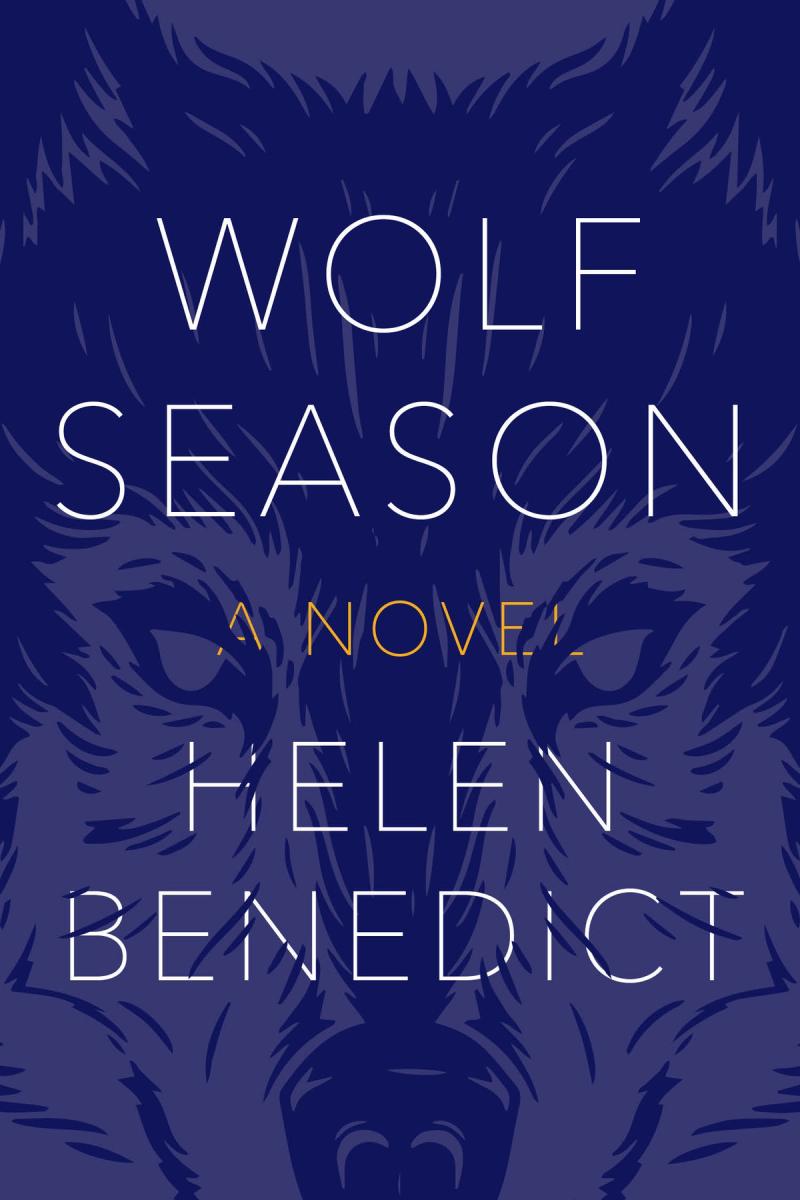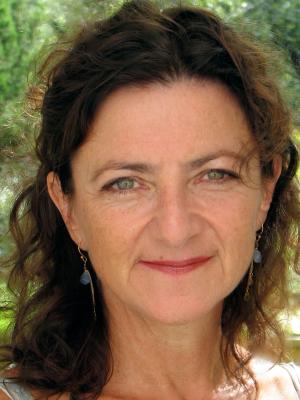[Benedict] has emerged as one of our most thoughtful and provocative writers of war literature.
Wolf Season
After a hurricane devastates a small town in upstate New York, the lives of three women and their young children are irrevocably changed. Rin, an Iraq War veteran, tries to protect her blind daughter and the three wolves under her care. Naema, a widowed doctor who fled Iraq with her wounded son, faces life-threatening injuries. Beth, who is raising a troubled son, waits out her marine husband’s deployment in Afghanistan, equally afraid of him coming home and of him never returning at all. As they struggle to maintain their humanity and find hope, their war-torn lives collide in a way that will affect their entire community.
Firecracker Award Finalist
National Reading Group Month “Great Group Reads” selection
Military Times “Reading Guide” selection
Columbia Magazine “Reading List” selection
Literary Hub “Books Making News” selection
BookBrowse “Editor’s Choice” selection
Wrath-Bearing Tree “Monthly Fiction” selection
Kansas City Public Library/Kansas City Star “FYI Book Club” selection
Marin County Free Library “Reading Suggestions” selection

Paperback
- ISBN
- 9781942658306
Ebook
- ISBN
- 9781942658313
Congratulations to Wolf Season, a Firecracker Award Finalist and National Reading Group Month “Great Group Read” selected by the Women’s National Book Association. Find additional resources for the novel—including an interview, excerpt, reviews, discussion questions, and more—at BookBrowse.
Watch Helen Benedict talk about Wolf Season on the WGBH News segment “Bringing War’s Reality Home: Talking Fiction With Writer Helen Benedict.”
Helen Benedict discusses her novel Wolf Season and the challenges of writing about women and war on KPFA’s Bookwaves on Cover to Cover, KMSU’s Weekly Reader Radio Show, and Woodstock Booktalk Radio, and with Publishers Weekly, The Common, Stay Thirsty Magazine, Neworld Review, Michigan Daily, West Side Spirit, HuffPost, Read Her Like an Open Book, Snowflakes in a Blizzard, authors Caroline Leavitt and Katey Schultz, Powell’s Books, and the Columbia Journalism School.
The Kansas City Public Library and Kansas City Star have selected Helen Benedict’s novel Wolf Season for the “FYI Book Club.” Join the discussion, read an excerpt from the novel, and find an interview with the author in the Kansas City Star.
Helen Benedict talks about war literature with authors David Abrams, Cara Hoffman, Matt Gallagher, and Dalia Sofer in the “Life During Wartime” panel at the Center for Fiction, and with authors Seth Brady Tucker, Jesse Goolsby, Jane Rosenberg LaForge, and Samuel Snoek-Brown in the “Duty and Dilemma: 100 Years of Writing About War” AWP Roundtable.
Helen Benedict shares her recommendations for the “Best Contemporary Iraqi Writing About War” with the Literary Hub, where her novel Wolf Season is also “Making News.”
Helen Benedict discusses issues facing sexual abuse victims with Michel Martin on NPR’s All Things Considered and offers a short list of actionable items “to make #MeToo stick this time” at CNN.
Helen Benedict, a professor at Columbia University, is the author of seven novels, including Wolf Season, a Firecracker Award Finalist and National Reading Group Month “Great Group Reads” selection, and Sand Queen, a Publishers Weekly “Best Contemporary War Novel.” A recipient of both the Ida B. Wells Award for Bravery in Journalism and the James Aronson Award for Social Justice Journalism, Benedict is also the author of five works of nonfiction, including The Lonely Soldier: The Private War of Women Serving in Iraq, and the play The Lonely Soldier Monologues. She lives in New York.
visit author page »Praise for Wolf Season
A novel of love, loss, and survival, Wolf Season delves into the complexities and murk of the after-war with blazing clarity. You will come to treasure these characters for their strengths and foibles alike. Helen Benedict has delivered yet again, and contemporary war literature is much the better for it.
— Matt Gallagher, author of Kaboom: Embracing the Suck in a Savage Little War and Youngblood
Fierce and vivid and full of hope, this story of trauma and resilience, of love and family, of mutual aid and solidarity in the aftermath of a brutal war is nothing short of magic. Helen Benedict is the voice of an American conscience that has all too often been silenced. To read these pages is to be transported to a world beyond hype and propaganda to see the human cost of war up close. This is not a novel that allows you to walk away unchanged.
— Cara Hoffman, author of Be Safe I Love You and Running
Benedict masterfully summons characters who don’t share her biography: she’s a civilian getting sympathetically, and accurately, inside the minds of soldiers; a Westerner intimately addressing the concerns of Middle Eastern refugees; someone with the vivid power of sight imagining the equally vivid experience of the sightless; an adult bringing child characters to life.
No one writes with more authority or cool-eyed compassion about the experience of women in war both on and off the battlefield than Helen Benedict. In Wolf Season, she shows us the complicated ways in which the lives of those who serve and those who don’t intertwine and how—regardless of whether you are a soldier, the family of a soldier, or a refugee—the war follows you and your children for generations. Wolf Season is more than a novel for our times; it should be required reading.
— Elissa Schappell, author of Use Me and Blueprints for Building Better Girls
The novel moves between striking passages that speak war’s truth and heartfelt stories about how women—and mothers—experience war and its aftermath. While there are male soldiers in Wolf Season, women’s experience is at the forefront. . . . Told with honesty and empathy, Wolf Season is a contemporary tale about how the war always comes home.
Unflinching. . . . In a book that deserves the widest attention, Benedict ‘follows the war home,’ engaging readers with an insightful story right up until the gut-wrenching conclusion.
— Library Journal (starred review)
[Benedict is] at the top of her game here. . . . The wolves indeed have the last word in Wolf Season, much as do the dogs in David Wroblewski’s The Story of Edgar Sawtelle. Benedict’s final chapter is appropriately titled ‘Howl,’ which brings to mind Allen Ginsberg and his poem of the same name—with its line ‘monstrous bombs!’ in canto II. Yet perhaps Ginsberg’s line from one of his other poems, ‘America,’ best sums it all up: ‘America when will we end the human war?’ Helen Benedict’s Wolf Season certainly gives us ample reasons to consider doing so.
Wolf Season takes contemporary war-and-mil-writing preoccupation with dogs to its fantastical-yet-logical extension. . . . Rin and Naema are compellingly drawn, as are Rin’s daughter Juney and Naema’s son Tariq and the three wolves, Gray, Silver, and Ebony. Most striking, however, are two male characters, Louis Martin and Todd Wycombe, both veterans struggling to be men worthy of respect.

